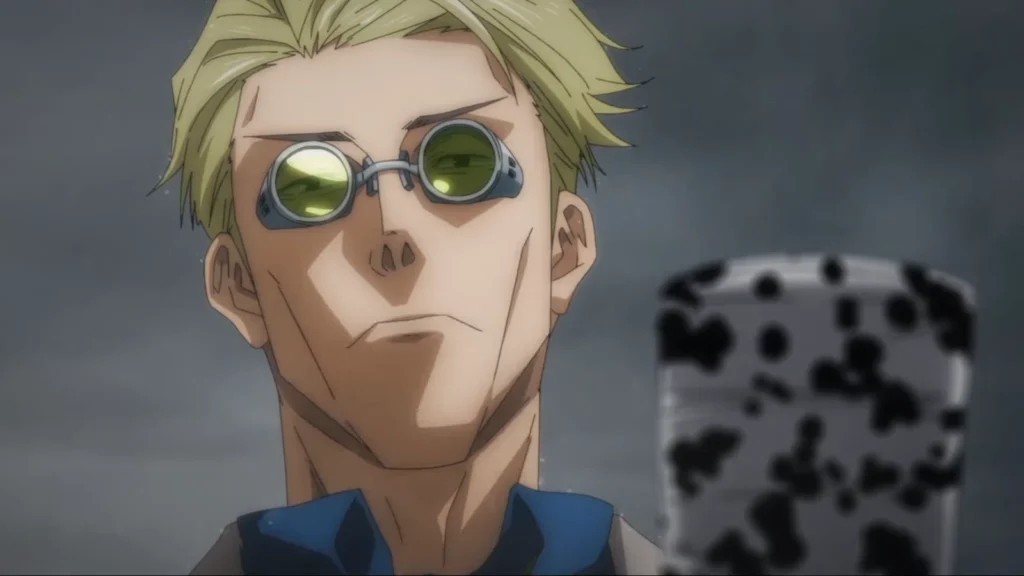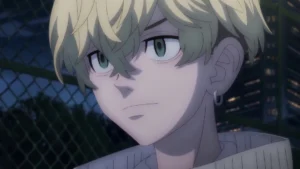Nanami is calm, calculated, and incredibly professional. He’s serious, but not to the point where he can’t see the humor in things. There’s that moment where he talks about hating overtime more than anything else, which is such a human gripe, and it immediately makes him more relatable. It’s like he’s fully aware of the absurdities around him but chooses to meet them with this stoic, almost weary attitude.
Despite his seemingly cold exterior, there’s a very strong sense of morality driving Nanami. He’s someone who believes in doing the right thing, even if he doesn’t make a big deal about it. He often talks about the responsibility that comes with being a sorcerer, but he’s not in it for glory or recognition. This sense of duty, even when he’s clearly disillusioned with the world, shows that he cares deeply about the people he’s protecting, even if he doesn’t wear his heart on his sleeve.
Nanami’s relationships
Nanami’s relationships are interesting to explore. He often keeps others at a distance, yet he clearly cares about his colleagues and students. With Yuji, for example, he takes on the role of a mentor. He doesn’t overwhelm Yuji with emotional speeches or encouragement. Instead, he focuses on giving practical advice, both in battle and in life. Nanami wants to protect the next generation from the mistakes and burnout he faced. He may not say much, but it’s clear he genuinely hopes for Yuji to survive and succeed in this harsh world.
Nanami’s personality blends professionalism, dry humor, and a strong sense of responsibility. He’s not the loudest or most expressive, but his presence always stands out. Grounded and reliable, he somehow manages to be cynical and caring at once.
Nanami’s Background
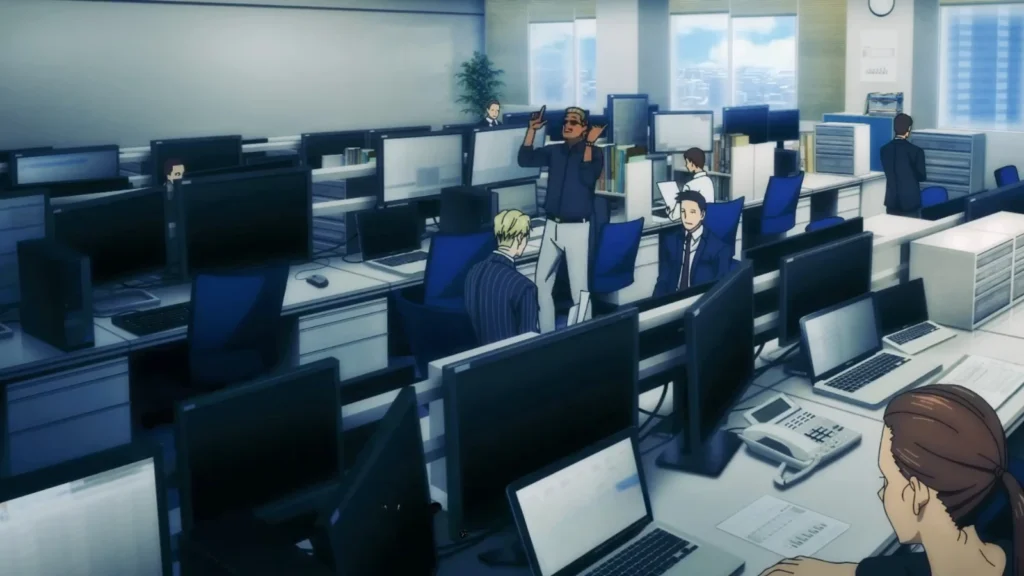
Before rejoining the world of jujutsu sorcery, Nanami had a stint as a salaryman. In classic fashion, this job, with its corporate monotony and grind, left him feeling unfulfilled and bitter. It’s almost a reflection of the real world, where people find themselves trapped in careers that drain the life out of them.
Nanami wasn’t different; he hated the daily routine of working just to line someone else’s pockets. There’s a scene where he talks about how the bakery owner was the only person who really appreciated him, and it’s this small, human moment that makes his character feel so layered. It wasn’t the job itself that wore him down, but the fact that he wasn’t contributing anything meaningful to the world.
That frustration eventually drives him back to jujutsu, but even then, he’s not particularly happy about it. He’s not the typical “hero” character we see so often in anime. Nanami doesn’t want the glory or the thrill of being a sorcerer. He even admits that the only reason he left his salaryman life behind was that being a jujutsu sorcerer, with all its dangers, was slightly less miserable than sitting in an office all day.
Nanami and Yuji
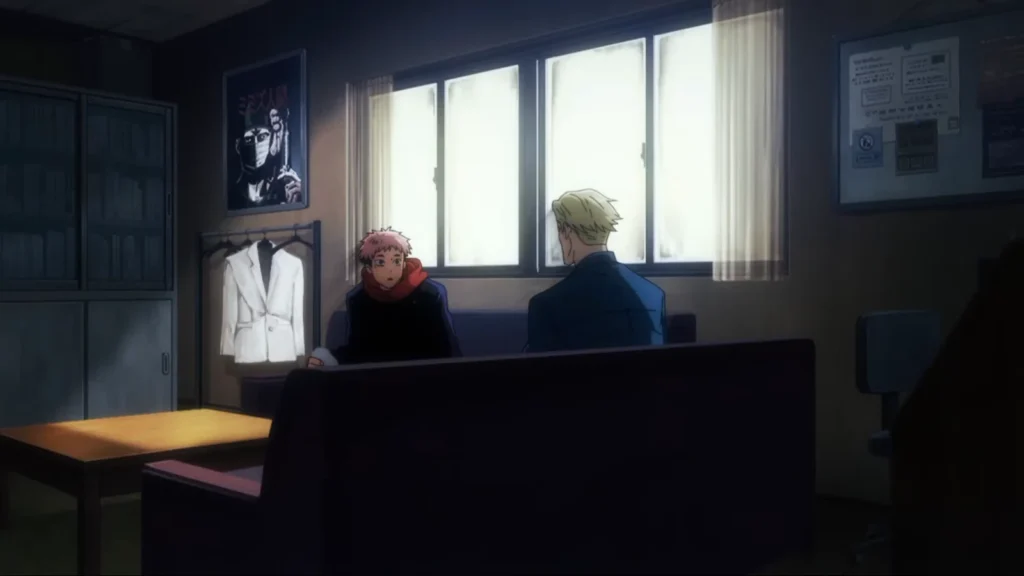
Even though Nanami comes across as detached, he deeply cares about the younger generation. He steps into that mentor role reluctantly, but you can see that he wants to protect Yuji from the same bitterness that he himself feels. He’s seen what the world of jujutsu sorcery does to people, how it can wear them down, and he doesn’t want that for Yuji.
There’s a quiet, almost fatherly affection in how he guides him. He gives Yuji practical advice, not just about fighting, but about life. And, perhaps more importantly, he leads by example, showing Yuji that strength doesn’t always come from physical power, but from resilience and the will to keep going, even when it feels pointless.
Motivations
Nanami’s motivations are refreshingly straightforward. He doesn’t exorcise curses because he wants to be a savior or because he enjoys fighting. Instead, he does it because someone has to, and he happens to be good at it. His decision to leave his soul-sucking office job is less about a noble calling and more about finding a place where he can at least make a tangible difference. He knows that the world of jujutsu is dark and dangerous, but he’d rather face that than waste away in an office, living a life devoid of purpose.
The 7:3 Ratio Technique

Nanami’s signature ability, the 7:3 Ratio Technique, allows him to divide his opponent into ten equal parts and strike at a weak point, dealing critical damage. It’s methodical, efficient, and leaves little room for error, much like Nanami himself. It’s not flashy or grandiose; it’s just effective. His ability is a perfect representation of his character: straightforward, no frills, and always on point.
Overtime
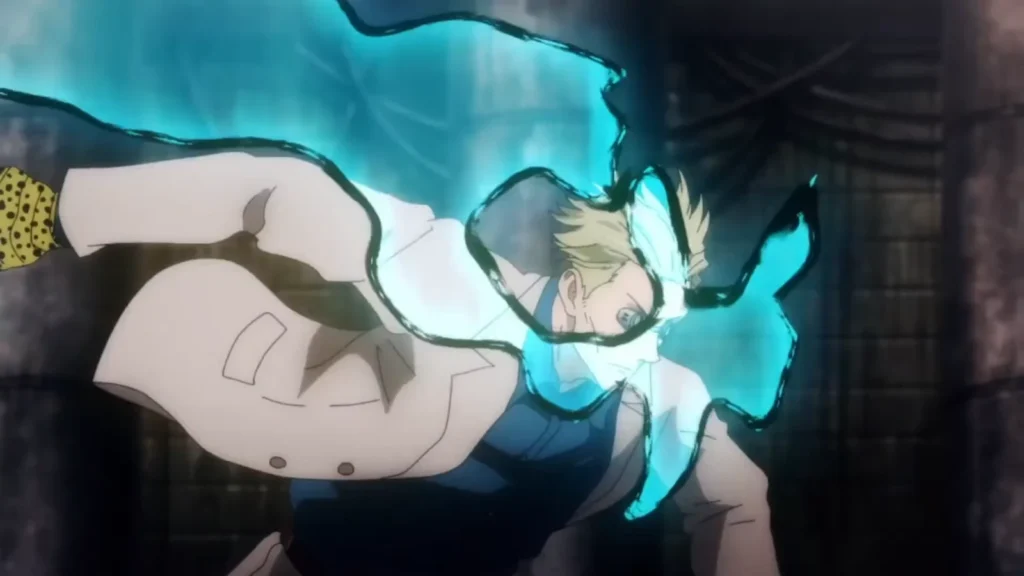
Nanami is super strict about his 9-to-6 workday, but the moment the clock hits 6 PM and he’s forced to keep going, his cursed energy gets a huge boost due to a binding vow. To do this he don’t use part of his cursed energy on the rest of the normal job time, and all this cursed energy he don’t use during the day, goes back to him in overtime.
Why We Love Him
What makes Nanami so compelling is that he’s an everyman thrown into extraordinary circumstances. He’s not a prodigy like Gojo or driven by vengeance like Megumi. He’s just a guy who’s good at his job and tries to do the right thing, even when he doesn’t want to. In a world full of larger-than-life characters, Nanami is refreshingly human. He’s tired, he’s frustrated, but he’s still there, day in and day out, doing what needs to be done.
In the end, Nanami reminds us that heroism doesn’t always come in the form of grand gestures or fiery speeches. Sometimes, it’s just a man in a suit, grumbling about overtime, stepping up when it counts.

